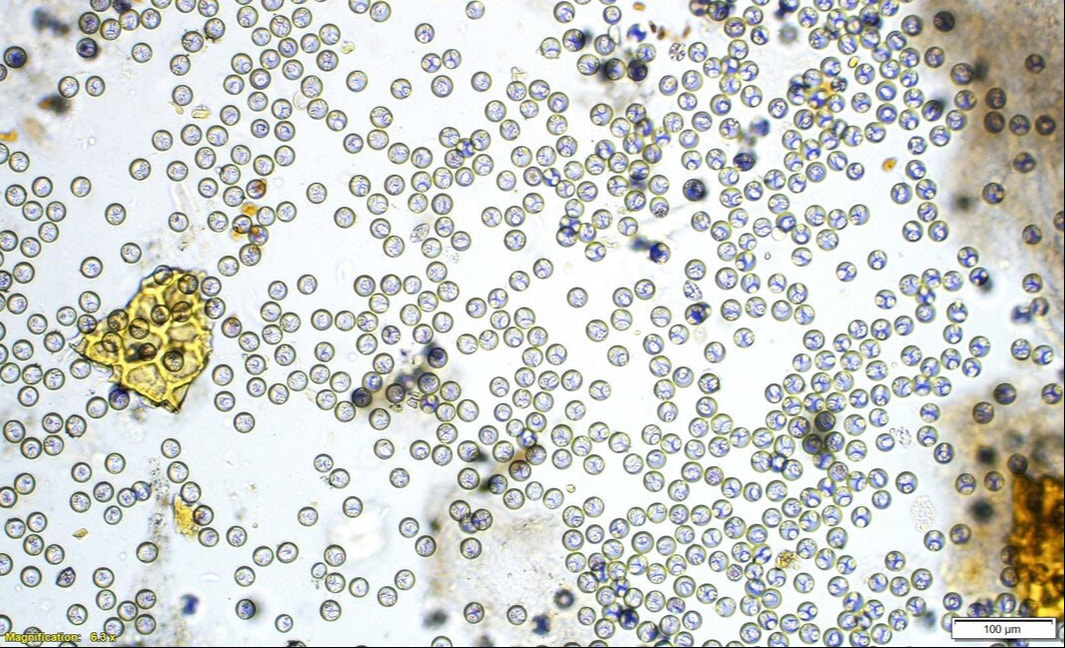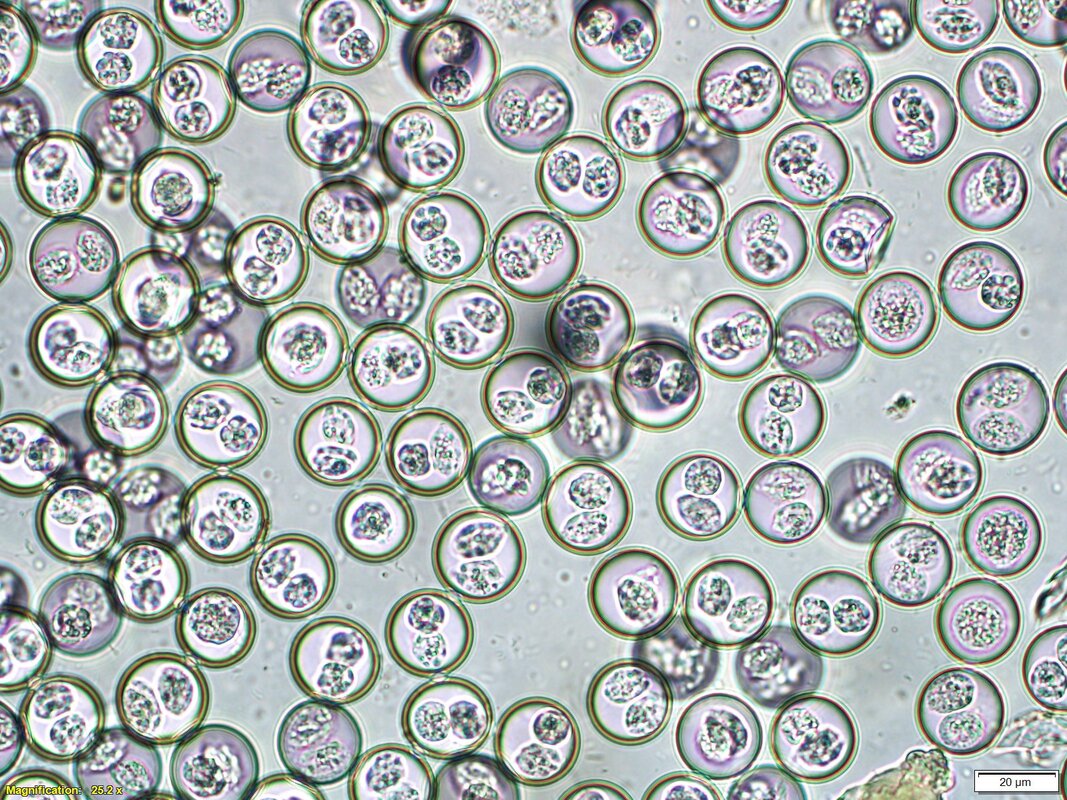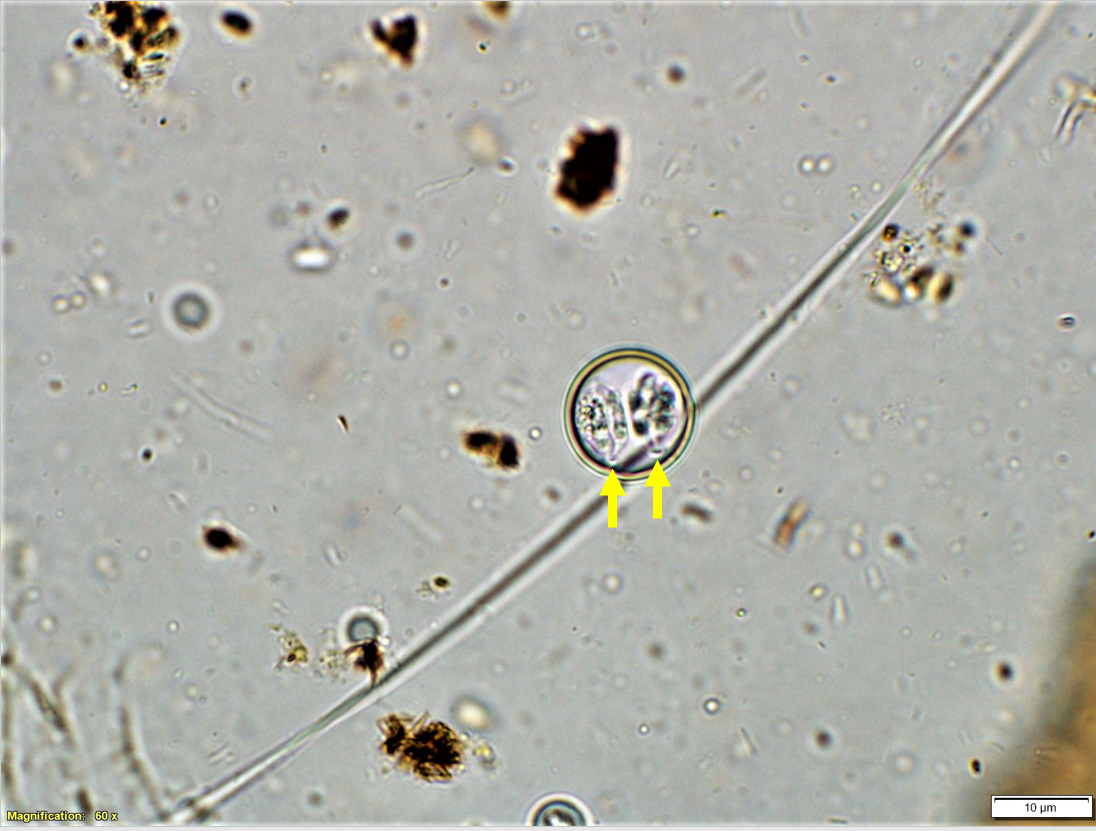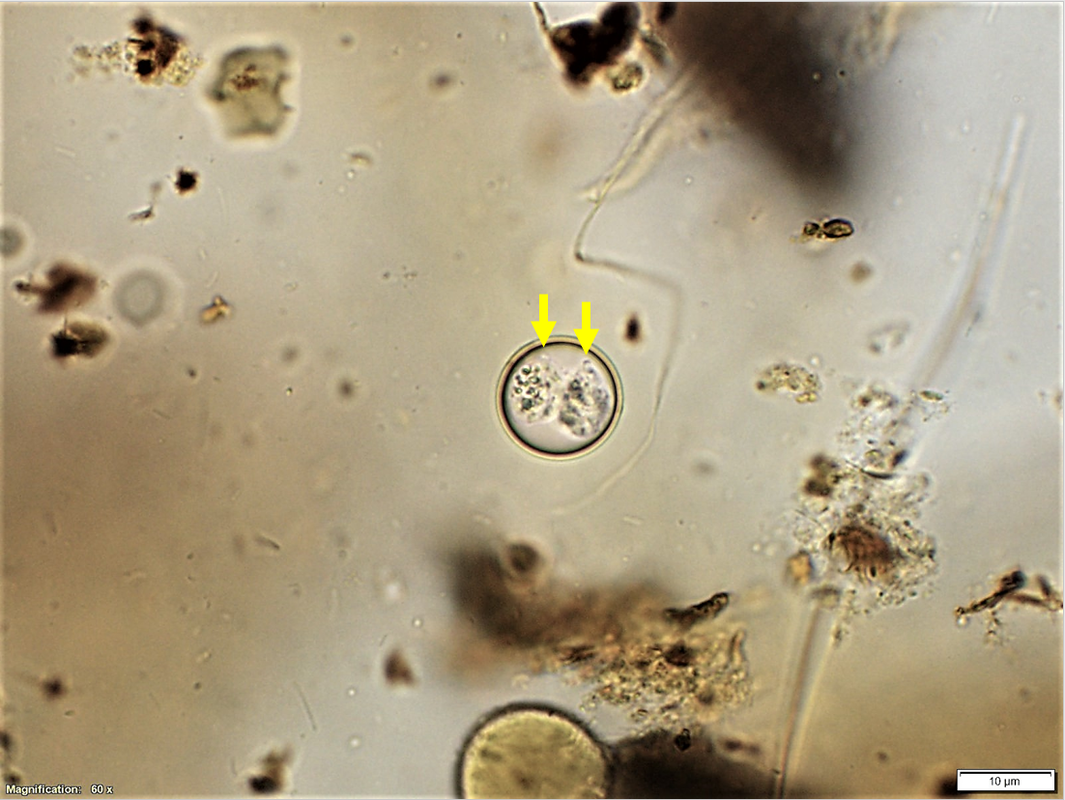Winter is comingA 1-year-old, intact male bearded dragon was brought to an animal clinic with a history of intermittent soft stool. Centrifugal fecal flotation with Sheather’s sugar solution (specific gravity, 1.25) was performed. A large number of coccidian oocysts were observed, and the majority of oocysts were already sporulated (Figures 1 and 2). Morphology of the oocysts was carefully examined; sporulated oocysts contained two sporocysts, and each sporocyst had a small bump or knob like structure on the end (Figures 3 and 4). Figure 1: Centrifugal fecal flotation 100x magnification. Figure 2: Several oocysts were already sporulated 400x magnification. Figure 3: A small knob was observed on each sporocyst (indicated by arrows) 600x magnification. Figure 4: An additional view at 600x magnification showing the small knob at the end of each sporocyst (indicated by arrows). Isospora amphiboluri The small knob on the end of each sporocyst was a Stieda body. Isospora species with Stieda bodies have been reclassified in the family Eimeriidae, whereas those without Stieda bodies have remained in the family Sarcocystidae. All Isospora species found in mammals lack Stieda bodies, and thus are in the family Sarcocystidae and are named Cystoisospora. Isospora amphiboluri is a common intestinal coccidian parasite in bearded dragons (Pogona vitticeps). Isospora amphiboluri can damage the intestinal mucosa causing malabsorption, which leads to diarrhea, dehydration, and in severe cases death. Juveniles are most at risk. References: Carreno and Barta. (1999). An Eimerid origin of isosporoid coccidia with Stieda bodies as shown by phylogenetic analysis of small subunit ribosomal RNA gene sequences. https://www.ncbi.nlm.nih.gov/pubmed/10207368 Hafeez and Barta. (2019). Conserved mitochondrial genome organization of Isospora species (Eimeriidae, Coccidia, Apicomplexa) infecting reptiles (Pogona vitticeps (Sauria: Agamidae) and birds (Garrulax chinensis Aves: Passeriformes). https://www.tandfonline.com/doi/full/10.1080/23802359.2018.1564388 Special thanks to Dr. John R. Barta (Professor at Ontario Veterinary College, University of Guelph) for helping and confirming the diagnosis of this case and sharing the references! |
Archives
July 2024
Have feedback on the cases or a special case you would like to share? Please email us ([email protected]). We will appropriately credit all submittors for any cases and photos provided.
|




